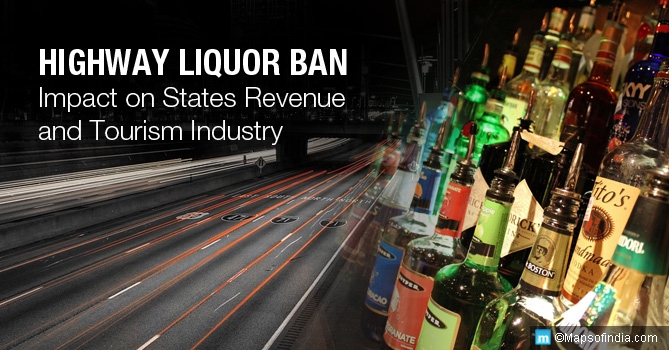The Liquor Ban
The Supreme Court of India issued a ban on sale of liquor and spirits within 500 metres of any national or state highway from 1 April, 2017. The mandate affects not only shops but also bars, restaurants, and hotels that are located on highways across the country. The state governments were asked to ensure that no liquor serving establishment is either visible or easily accessible from any of the highways. A number of state and national highways pass through cities and urban settlements. These are also not exempt from the ban and will now either have to stop serving liquor or will have to relocate. Advertisements and signs about the availability of liquor shops, too, have been banned on highways.
What Prompted The Ban
The intentions behind the ban are beyond reproach. According to Arrive Safe, a road safety espousing NGO which had filed a PIL in the apex court, some 1.42 lakh people are killed on Indian roads each year and drunken driving is the major cause of such road accidents. According to statistics from the Ministry of Road Transport and Highways, over 5.01 lakh road accidents took place in the year 2015. On an average 17 lives are lost each hour on Indian roads. Slamming the government for its inaction over the past decade, the Supreme Court decided to down the shutters on all liquor serving units in close proximity to highways.
Hospitality Industry Faces Backlash
The food and hospitality industry is far from pleased over the ruling. According to its estimates, the industry as a whole will incur a loss of about INR 65,000 crore. The loss of tax revenue to the states is pegged at about INR 50,000 crore. Some 1 lakh liquor shops, bars and other establishments will have to be shut down, it is estimated. Some premier hotel chains in the country will also not be able to serve liquor in their properties. These include JW Marriott, Grand Hyatt, and Taj Santacruz in Mumbai; JW Marriott, Trident, the Oberoi, and Leela Ambience in NCR. Over 1 lakh people are set to lose their jobs over the ban, industry experts claim.
States Look For Alternatives
In the face of protests from the hospitality industry, many state governments have started to look for ways to circumvent the liquor ban. The governments of Andhra Pradesh, Goa, Himachal, Pradesh, Maharashtra, Punjab, Rajasthan, Telangana, Uttar Pradesh and West Bengal have asked the roadways ministry to look into a possible conversion of national highways into urban roads. By merely rechristening these highways, they hope to find a solution to the conundrum caused by the SC’s injunction. To make this possible, the centre has to first denotify the intended national highways and the states will subsequently notify them as urban roads.
Taking The Middle Path
The Federation of Hotel & Restaurant Associations of India (FHRAI), an industry representative organization which often acts to protect the interests of the hospitality industry, is planning to approach the apex court for some relief from the injunction that is causing huge losses. This is a serious concern that needs to be addressed. On the other hand, merely denotifying national highways will only foil the SC’s intention to protect precious human lives lost in road accidents. It is important that the roadways ministry officials and the FHRAI get together and work out an acceptable solution in the interest of the country.





